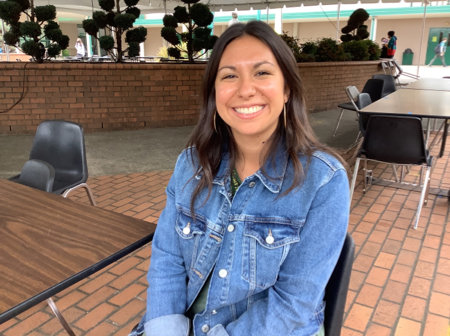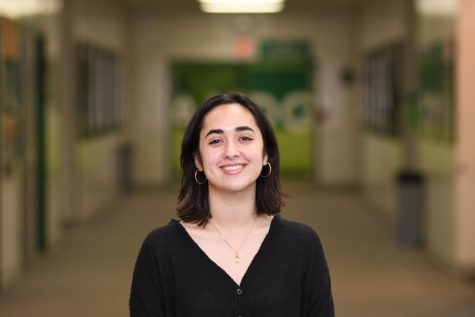New Faculty Spotlight: Ms. Amanda Montez, DEI Director

Montez joins the DEI office starting fall 2021 as the new DEI director.
Ms. Amanda Montez is the newest addition to Jesuit’s Diversity, Equity, and Inclusion office this fall. Having extensive experience in DEI and at Jesuit schools, she is looking forward to this opportunity and excited for the upcoming year.
“I’m a product of Jesuit education,” Montez said. “I went to Loyola Marymount and University of San Francisco. I’ve always been an educator and a teacher who got to do DEI work on the side, helping to support schools that didn’t have formal DEI offices, so being able to be in a place with an office, and students who know and love it, is really powerful. I’m trying to be the teacher that I wished I had as a kid.”
In addition to the work she puts into helping students, Montez will also work with the leaders of identity-based clubs and activities on campus, partner with affinity groups for parents, such as Padres Unidos, and oversee professional development with the help of the Jesuit leadership team.
Montez has what she refers to as a “resting happy face”. Even though it can’t be seen with a mask, she’s always smiling, and she hopes to see students stop by the office throughout the year.
Full Interview Transcript: (edited lightly for length and content)
How long have you been involved in DEI?
“For the past 6 years. I worked in a Diversity and Equity consulting firm in Baltimore, Maryland, and then I worked in Jesuit schools following that. I have always been doing a lot of DEI consulting with the Jesuit schools, and specifically in Jesuits West and the nation, too, with Ignatian Solidarity Network.”
At which schools have you worked prior to Jesuit?
“Xavier College Prep in Palm Desert, California, and Sacred Heart Nativity Schools in San Jose—a Jesuit high school and a Jesuit middle school. And Xavier College Prep is where I went to high school.”
What are your main responsibilities this year?
“Number one is working with students who qualify for financial assistance, and for them to have the basic resources they need to thrive at Jesuit. It’s also overseeing a lot of our student leaders who do programming based on identities, so partnering with our BSU, LSU, ASU, GSA, Young Women of Color, Young Men of Color, Jewish Student Union, South Asian Affinity Club, there’s a ton more clubs. That’s the student side, we have a parent side as well. That means partnering with our parent affinity groups. We have a Parent Diversity Initiative Association, parents of African American students, parents of Asian students, and Padres Unidos. Then, with teachers, we oversee a lot of professional development, and we work with the bigger leadership team here at Jesuit to see the big goals that we have in the next few years to make our space and our home more equitable and loving.”
What excites you about working at Jesuit?
“I’m a product of Jesuit education. I went to Loyola Marymount and University of San Francisco. I’ve always been an educator and a teacher who got to do DEI work on the side, helping to support schools that didn’t have formal DEI offices, so being able to be in a place with an office, and students who know and love it, is really powerful. I’m trying to be the teacher that I wished I had as a kid.”
What is something that the community should know about you?
“I have a resting happy face that you can’t see beneath my mask. I always just have a big grin! I’m really excited to meet everybody, so make sure you come into the DEI office.”
What is the best piece of advice you ever received?
“I’ve had too many good mentors! Just when we’re thinking about diversity work, I have a mentor who told me, ‘Think about the things that are easily accessible. Think about the low hanging fruit.’ I think sometimes when we think about being an anti-racist institution, we’re like, ‘we have to move mountains’, and we do, but it’s really important that we take those first tiny steps up a hill. The work of anti-racism is never done, and I think sometimes it’s remembering the things that are right within grasp.”
“And always remember to be in good relation with students, I think that’s number one. I’ve worked with Homeboy Industries, I’ve worked with migrant women in Argentina, and I think the main thing is: How do we always be in kinship with one another? And, if we’re not in this work together, working as a collective, it’ll never be done.”



